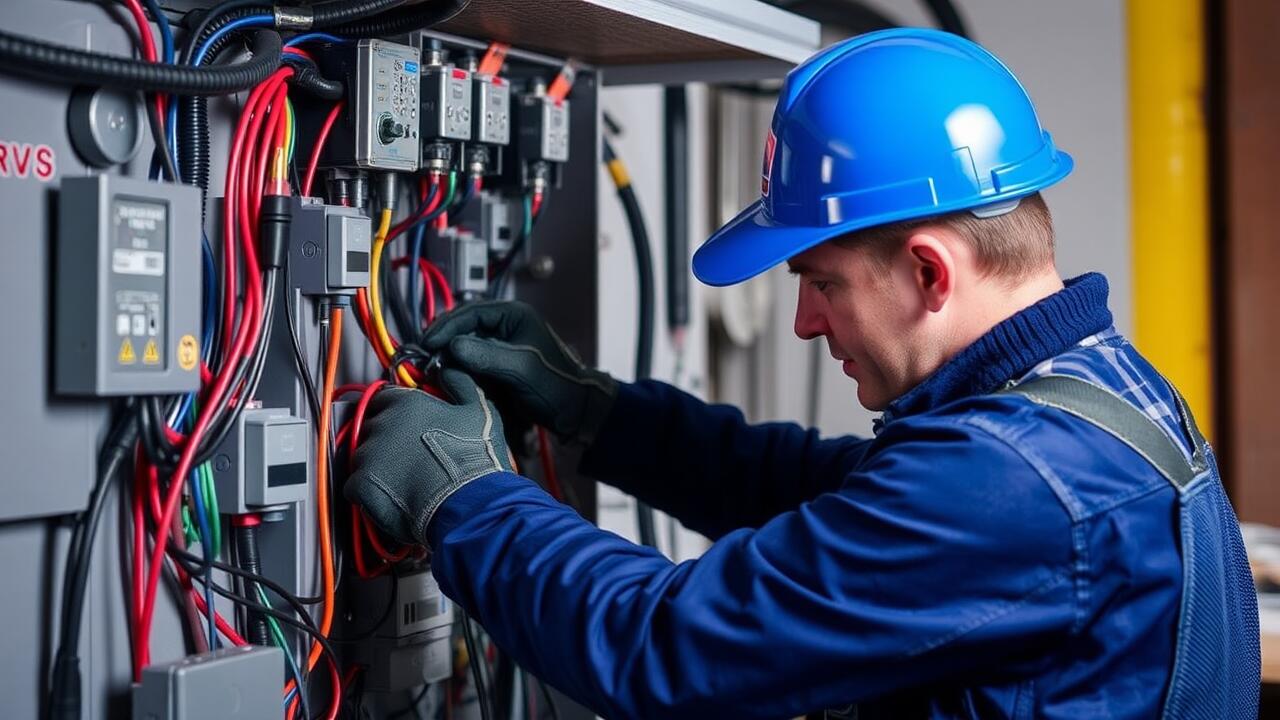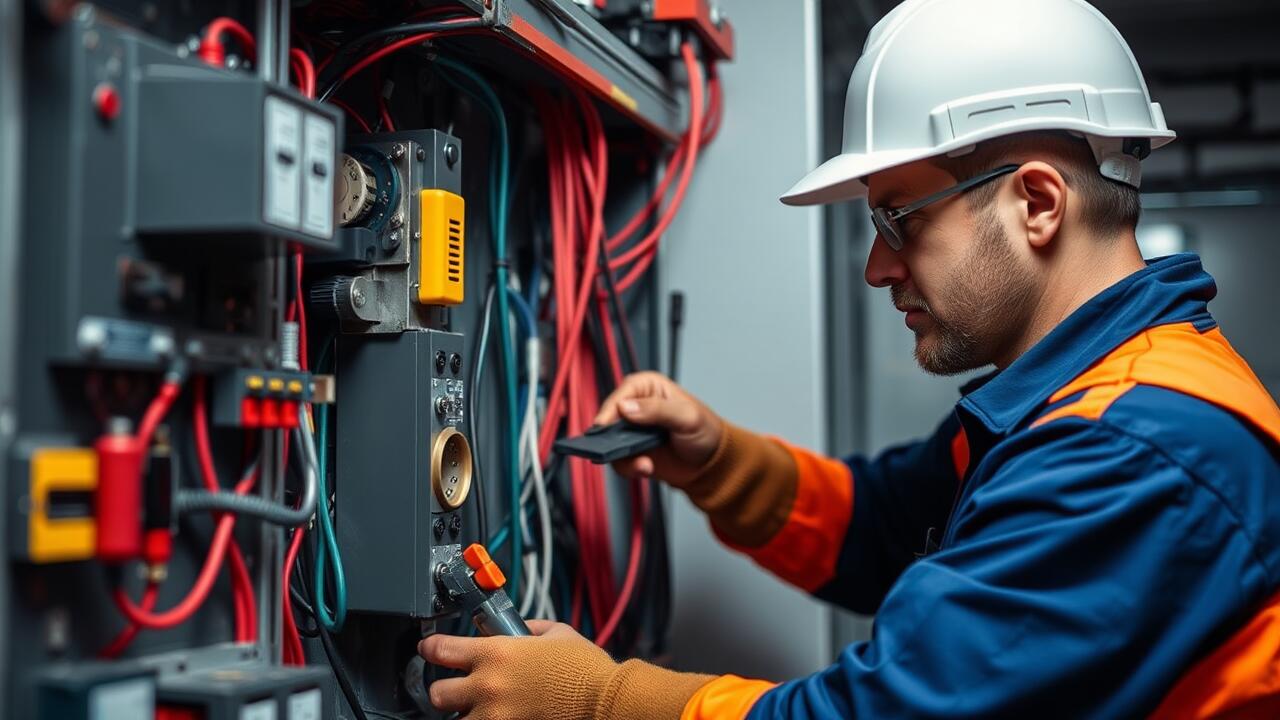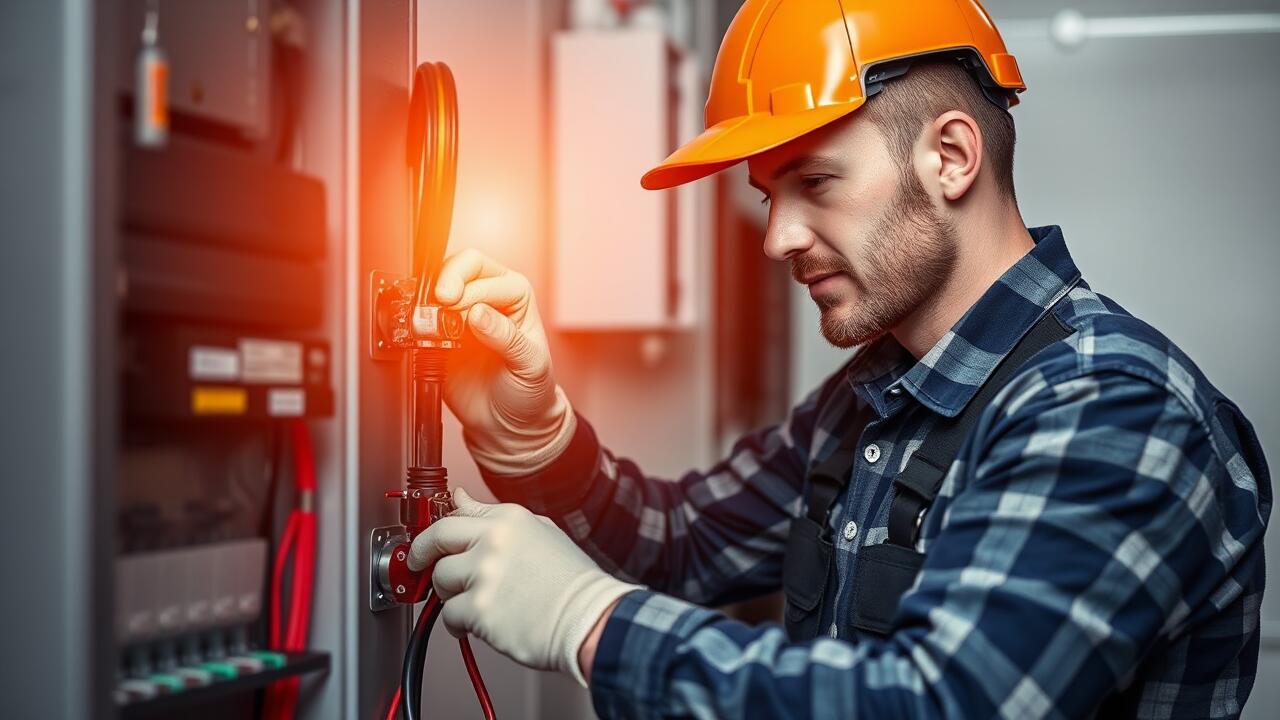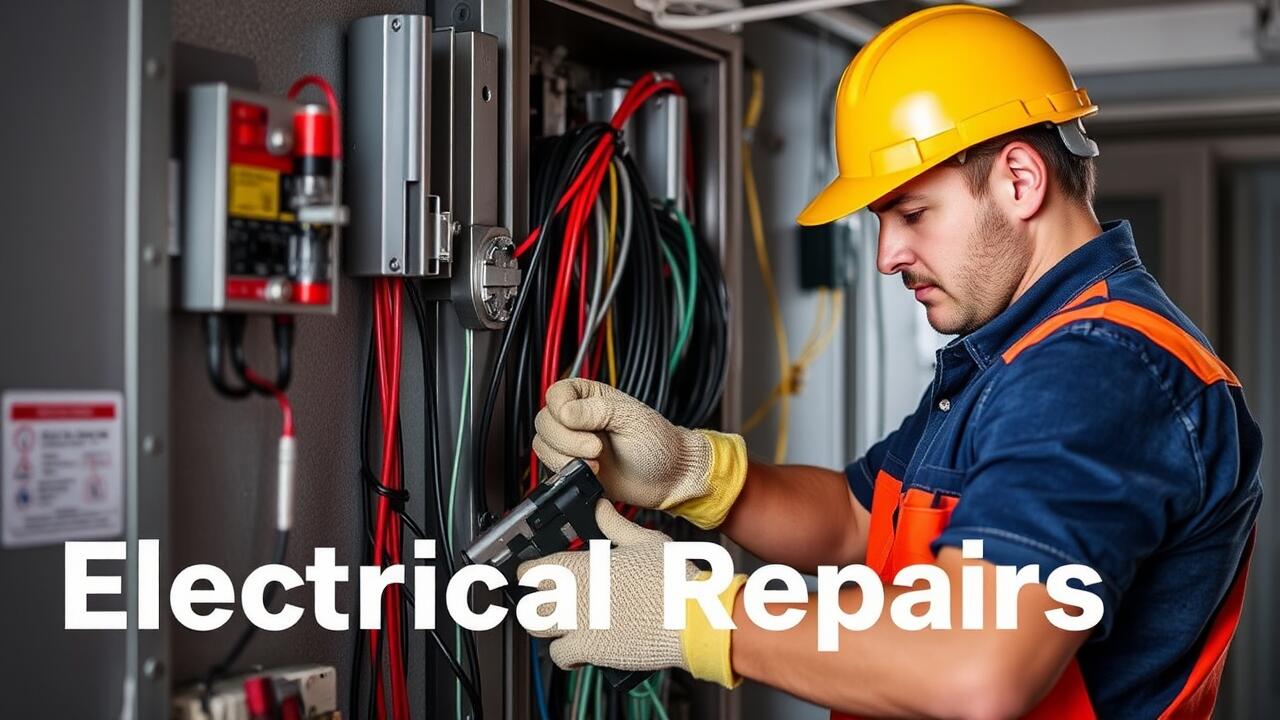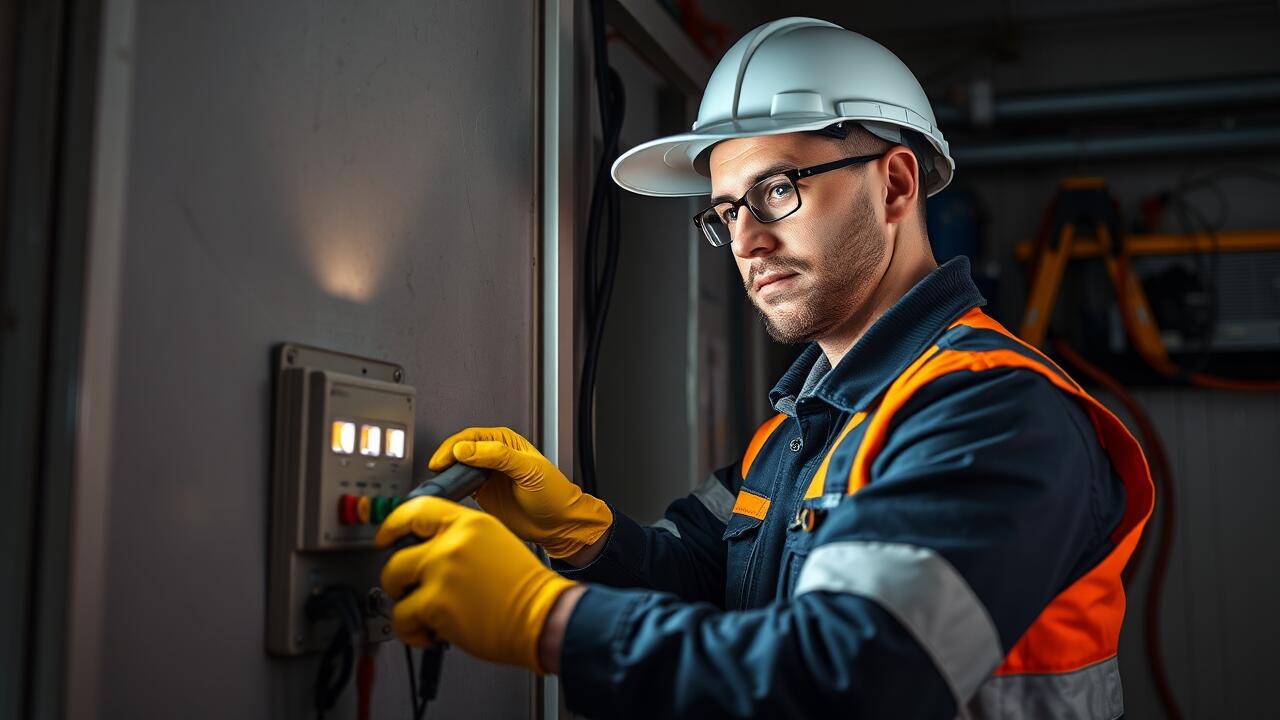
Inadequate Grounding
Inadequate grounding poses a significant risk to home electrical safety. Grounding serves as a safety mechanism that directs excess electricity away from electrical fixtures and devices. When this function is compromised, it can lead to dangerous situations where appliances may become shock hazards. Homes that lack proper grounding may not only experience erratic electrical behavior but also increase the likelihood of electrical shocks to users.
Homeowners must be aware of the signs of inadequate grounding. Flickering lights, frequent tripped breakers, or a tingling sensation when touching appliances are indicators that something may be wrong. If these issues arise, seeking professional assistance is crucial. Searching for "Electrical Repairs near me" can help homeowners find qualified electricians who can evaluate and properly ground their electrical systems, ensuring a safer home environment.
Importance of Proper Grounding Techniques
Proper grounding techniques are essential for ensuring electrical safety in any home. Grounding provides a path for excess electricity to safely dissipate, reducing the risk of electrical shock and protecting appliances. Without a proper ground, stray voltage can build up, leading to dangerous situations that potentially harm residents and damage electrical devices. Consulting with a qualified electrician can help assess whether your home’s grounding system meets current safety standards.
Incorporating grounding practices during home renovations or electrical upgrades is crucial. New circuits should always be properly grounded, which involves adhering to local codes and regulations. Homeowners should regularly check their grounding systems to ensure they are intact and functional. Those uncertain about their home’s electrical safety can search for “Electrical Repairs near me” to find professional services that can evaluate and enhance their grounding methods. This proactive approach promotes not only the safety of inhabitants but also the longevity of electrical appliances.
Improper Use of Extension Cords
Extension cords are often convenient for extending power to devices in areas lacking outlets. However, improper use can lead to serious electrical hazards. Overloading an extension cord with too many devices can cause overheating. This may result in the cord melting or even starting a fire. Additionally, using outdoor cords indoors or running cords through windows or doors can damage the insulation, exposing live wires and heightening the risk of electrical shock.
To ensure safety, choose the right extension cord for the intended use, considering both length and power requirements. Regularly inspect cords for fraying, kinks, or any signs of wear. If you experience frequent tripping of circuit breakers or notice unusual heat from outlets, it is advisable to look for "Electrical Repairs near me." Professional help can address potential issues with wiring or the circuits themselves, reducing the risk associated with using extension cords.
Safe Practices for Using Extension Cords
Using extension cords safely is essential to prevent electrical shocks and fires. Always choose cords rated for the intended usage, such as heavy-duty cords for power tools or appliances. Never overload extensions by connecting multiple devices that exceed the cord's capacity. Keeping cords out of high-traffic areas reduces the risk of tripping hazards and damage.
Inspect cords regularly for any signs of wear or damage. If you notice fraying or exposed wires, it’s best to replace the cord immediately. Avoid using extension cords as a permanent solution; instead, consider hiring professionals for more permanent wiring needs. Searching for "Electrical Repairs near me" can lead to reliable services that ensure your electrical system functions safely and effectively.
Aging Appliances
Aging appliances pose a significant risk for electrical shocks within homes. As devices become older, their internal wiring degrades, insulation may wear thin, and connections can weaken. These issues can lead to short circuits or faults that increase the likelihood of electrical shock. Homeowners should be vigilant about the age of their appliances, as older devices may not meet current safety standards.
Recognizing when to replace old electrical devices is crucial for maintaining safety. Regular inspections can help identify any signs of wear or damage. If an appliance frequently trips a circuit breaker or exhibits a burning smell, it may require immediate attention. Seeking professional help with queries like "Electrical Repairs near me" ensures that any potential hazards are addressed effectively, reducing the risk of electrical shocks in the home.
When to Replace Old Electrical Devices
Old electrical appliances can pose significant safety risks as they age. Over time, the components of these devices can wear out, leading to faulty wiring or even electrical short circuits. If you notice unusual smells, sparks, or any signs of overheating, it's crucial to consider replacing the appliance rather than attempting a quick fix. Regular inspections of aging equipment can help identify potential hazards before they escalate into serious problems.
When deciding whether to replace an old electrical device, consider its reliability and safety features. Newer appliances often come with improved safety mechanisms that can prevent electric shocks and fires. If you’re unsure about the condition of your older devices or need professional evaluation, searching for "Electrical Repairs near me" can connect you with skilled technicians who can provide expert assessments and recommendations. Prioritizing safety in your home should always be a primary concern.
FAQS
What is inadequate grounding and why is it dangerous?
Inadequate grounding occurs when electrical systems lack proper grounding techniques, which can lead to electrical shocks and equipment damage. Proper grounding is essential for directing excess electricity safely into the ground.
How can I ensure my extension cords are safe to use?
To ensure safe use of extension cords, choose cords with the appropriate power rating, avoid overloading them, and regularly check for signs of damage. Always unplug cords when not in use and avoid using them in wet conditions.
What are the signs that my appliances may be aging and unsafe?
Signs that appliances may be aging include frequent tripping of circuit breakers, frayed or exposed wires, unusual noises or smells, and inconsistent performance. If you notice these signs, it may be time to replace the device.
How often should I check my home's electrical system for safety?
It is advisable to have your home's electrical system inspected by a qualified electrician every 3 to 5 years, or sooner if you notice any issues such as frequent electrical problems or if you've added new appliances.
What should I do if I experience an electrical shock at home?
If you experience an electrical shock, seek medical attention immediately, even if you feel fine. Additionally, turn off the power to the affected area and consider contacting a licensed electrician to investigate the issue.
